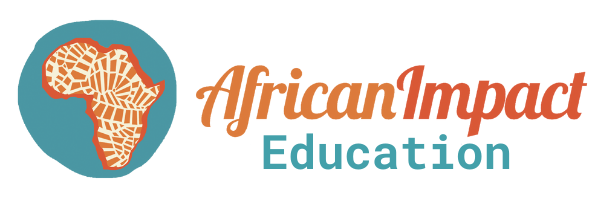
Having taken account of the feedback from the consultation, adaptations to the IFRS for SMEs Accounting Standard are being proposed to create international non-profit accounting guidance as NPO-specific financial reporting guidance. International Accounting Standards are international principles and rules for the presentation of financial accounts. Most commonly, this term refers to what are now called ‘International Financial Reporting Standards’ (‘IFRS’). That information, along with other information in the notes, assists users of financial statements in predicting the entity’s future cash flows and, in particular, their timing and certainty. Financial accounting and analysis are not the only branches of accounting that are international. Tax laws vary widely from country to country, so any business with operations across borders will need accountants versed in international principles.

Reveal the employment of accounting systems in the service of tracking the exchange of goods between temples. Further evidence of the prevalence of accounting would appear from discoveries in ancient Egypt and Babylonia, but the most comprehensive findings would first originate from materials belonging to the period of the Roman empire. Information notated across innumerable archives during this era show detailed quantifications kept across areas, spanning public revenues, private expenditures, the distribution of commodities, and more.
Moving Toward New Global Accounting Standards
After you earn your degree, you will need to put it to use for at least a few years. It can also be extremely beneficial to attend a graduate program so that you can sit for the Uniform CPA exam. Having the CPA license is what will distinguish you as a professional by demonstrating that you meet the highest standard of competence in accounting, according to the National Association of State Boards of Accountancy. The difference is only when the calculations are made, which affects tax liability, shareholder dividends, and apparent overall company health. All of these forms must be audited for accuracy and transparency so that applicable parties looking at the company can get the correct information.
- In the near future, virtually all accountants will have to deal with international principles in some form, and with the IFRS standards gradually being adopted around the world, all accountants will need to be versed in the field.
- He has taught or conducted research in international accounting at universities in a number of countries around the world, including Austria.
- Global compliance means being familiar with all the accounting standards that apply to the operation of your business.
- This includes the United States (which applies ‘Generally Accepted Accounting Principles’ or ‘GAAP’), China and Japan.
- Those standards are transparent and consistent, which makes it far easier to work with companies in multiple countries than it is to work with companies in the United States.
- Most commonly, this term refers to what are now called ‘International Financial Reporting Standards’ (‘IFRS’).
International Accounting Standards (IAS) are a set of rules for financial statements that were replaced in 2001 by International Financial Reporting Standards (IFRS) and have subsequently been adopted by most major financial markets around the world. Both sets of standards were issued by the International Accounting Standards Board (IASB), an independent body based in London. On 26 June 2023 the ISSB issued its inaugural standards—IFRS S1 and IFRS S2—ushering in a new era of sustainability-related disclosures in capital markets worldwide. The relevant company law changes are due to be introduced in conjunction with the detailed accounting requirements of CA 2006, with the expectation that they will apply for accounting periods beginning on or after 6 April 2008, and the ASB envisages a similar commencement date for the new standard. In the near future, virtually all accountants will have to deal with international principles in some form, and with the IFRS standards gradually being adopted around the world, all accountants will need to be versed in the field. One of the chief differences between the GAAP and the IFRS is the way each treats inventory.
More International Business Means Cross-Border Accounting Problems
International problems have been around for as long as accounting has existed since there has always been a need to keep track of business deals across national borders. But it is the growth of the global economy that has brought us accounting vs international accounting these changes to the forefront. What do you do about currency fluctuations in you make a sale to or purchase from a foreign business? These kinds of problems are increasingly faced by accountants in all business environments.
International accounting differs from US accounting when it comes to long-lived assets. Under GAAP, long-lived assets cannot be revalued, while IFRS does allow for some revaluation. GAAP allows for the depreciation of long-lived assets, but it’s uncommon, while under IFRS the depreciation of long-lived assets is a requirement if components of the asset have differing patterns of benefit. Meanwhile, the International Accounting Standards Board defines the International Financial Reporting Standards (IFRS), an international equivalent to the GAAP, which is followed by over 120 countries including those in the EU. Now, it is 2020, and the United States’s recalcitrance has put its companies at a disadvantage.
IASB issues podcast on latest Board developments (September
The accounting powers that be in the U.S. simply have to decide to change for the better. Insights showcases news, opinion, analysis, interviews and features on the profession with a focus on the key issues affecting accountancy and the world of business. Efforts https://www.bookstime.com/ to improve the clarity and consistency of the financial reports of non-profit organisations (NPOs) took a step forward at the end of September after CIPFA and Humentum published the second Exposure Draft of International Non-Profit Accounting Guidance (INPAG).
- Since 2002, America’s accounting-standards body, the Financial Accounting Standards Board (FASB) and the IASB have collaborated on a project to improve and converge the U.S. generally accepted accounting principles (GAAP) and IFRS.
- The complete list of participating colleges and universities, information on when fees will be waived, and how to apply to each school can be found here.
- In the US, the GAAP states that tax deferrals are able to be classified as current or non-current in balance sheets on a circumstantial basis.
- This will be of interest to any organization that is required to publish financial statements and operates globally.
- HESC, SUNY, and CUNY have scheduled virtual and in-person events throughout the month to encourage students to learn more about the New York State financial aid, inform students about their college options, and assist them in completing their applications.

